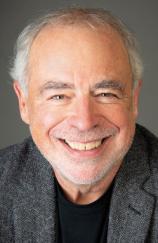Elsewhere: A Memoir
Review
Elsewhere: A Memoir
From his Pulitzer Prize-winning EMPIRE FALLS to novels like NOBODY'S FOOL and BRIDGE OF SIGHS, Richard Russo has mined a rich lode of stories based on his childhood in upstate New York's Gloversville. Until now, he's held back from writing about his experiences there in a work of nonfiction. Thanks to an invitation several years ago from Granta to contribute to its "going home" issue, he's finally produced this quietly moving memoir. But as much as it reveals some of the pleasures and pain of Russo's early life, the heart of ELSEWHERE is the story of his loving but often fractious relationship with his mother, Jean.
When the 18-year-old Russo was admitted to the University of Arizona in 1967, Jean took advantage of the opportunity to flee her compulsive gambler husband and the upstairs apartment she shared with her only child in her parents' Gloversville home. Driving a 1960 Ford Galaxie he christened the "Gray Death" (a vehicle that could not go in reverse, in a nice bit of symbolism), Russo and his mother embarked on what turned out to be a death-defying cross-country trek. Jean's quixotic decision to abandon a secure, well-paying job with General Electric in Schenectady, expecting she'd easily land a comparable position with the same employer in Arizona, was emblematic of what Russo calls her "intractable determination that was responsible for her seemingly endless suffering."
"ELSEWHERE is notable for its lack of sentimentality. That doesn't mean it's lacking in emotion. There are deep feelings coursing through this book. As we learn some of the story of Richard Russo's life, we can begin to appreciate the roots of his skill in transforming it into fiction."
Soon their prospects diverged. Richard, with his Ph.D. in English, eventually left academia to become a full-time novelist. When Hollywood discovered his work, he added well-paying screenwriting jobs to his resume. But after a brief period of independence in Phoenix, Jean's life turned into a dispiriting odyssey, trailing her son and his extraordinarily patient wife and children from Tucson to Carbondale, Illinois and eventually to Maine. In describing it, Russo offers ample evidence for his belief that his mother "never considered us two separate people but rather one entity, oddly cleaved by time and gender, like fraternal twins somehow born twenty-five years apart, destined in some strange way to share a common destiny."
After Russo accepted a position at Colby College in 1991, it's easy to lose track of his mother's series of moves from one apartment to another, each experience seemingly unhappier than the last. The sequence becomes mind-numbing, perhaps in the way it felt to Russo as he lived it: his mother's complaints about a newly-chosen home; the difficulties of a move; a too-brief period of relative calm and then a crisis that began the cycle all over again. It doesn't take long to realize that something more than what the family referred to vaguely as Jean's "nerves" lay at the root of her psychological turmoil. Russo's patience in parceling out those details displays an admirable economy in both its content and its prose.
The account of his mother's final days in Maine and Russo's reflections on the complicated drama he and his mother acted out are similarly understated and all the more moving as a result. There's no false note of closure or facile comprehension in resigned observations like this one:
"From the time I was a boy I understood that my mother's health, her well-being, was in my hands. How often over the years did she credit me, or my proximity, with restoring her to health? My rock, as she was so fond of saying, always there when she needed me most. My own experience, however, had yielded a different truth --- that I could easily make things worse, but never better."
As Gloversville, when hats and gloves went out of fashion and the low-level factory jobs involved in making them began to move overseas, its economy, dependent on those goods, quickly collapsed. The modest existence the town's workers were able to scratch out before that happened was anything but pleasant. There's a gruesome description of work in the beam-house, the place the animal hides first were processed at the tannery where his grandfather worked as a glove-cutter, and a catalog of the toxic brew of by-products the chrome tanning process released into the town's air and water. Russo's home town was the "canary in the mine shaft" for other small towns where "you could have strafed Main Street with an automatic weapon without endangering a soul." His obituary for Gloversville is as moving as anything he's written in his acclaimed novels and an apt companion to the family story.
Whether it's his clear-eyed portrait of the mixture of warmth and frustration that marked his relationship with the woman who called him "Ricko-Mio" or the depiction of his hometown, in its heyday and in its desolation, ELSEWHERE is notable for its lack of sentimentality. That doesn't mean it's lacking in emotion. There are deep feelings coursing through this book. As we learn some of the story of Richard Russo's life, we can begin to appreciate the roots of his skill in transforming it into fiction.
Reviewed by Harvey Freedenberg on November 1, 2012
Elsewhere: A Memoir
- Publication Date: July 30, 2013
- Genres: Nonfiction
- Paperback: 256 pages
- Publisher: Vintage
- ISBN-10: 0307949761
- ISBN-13: 9780307949769





